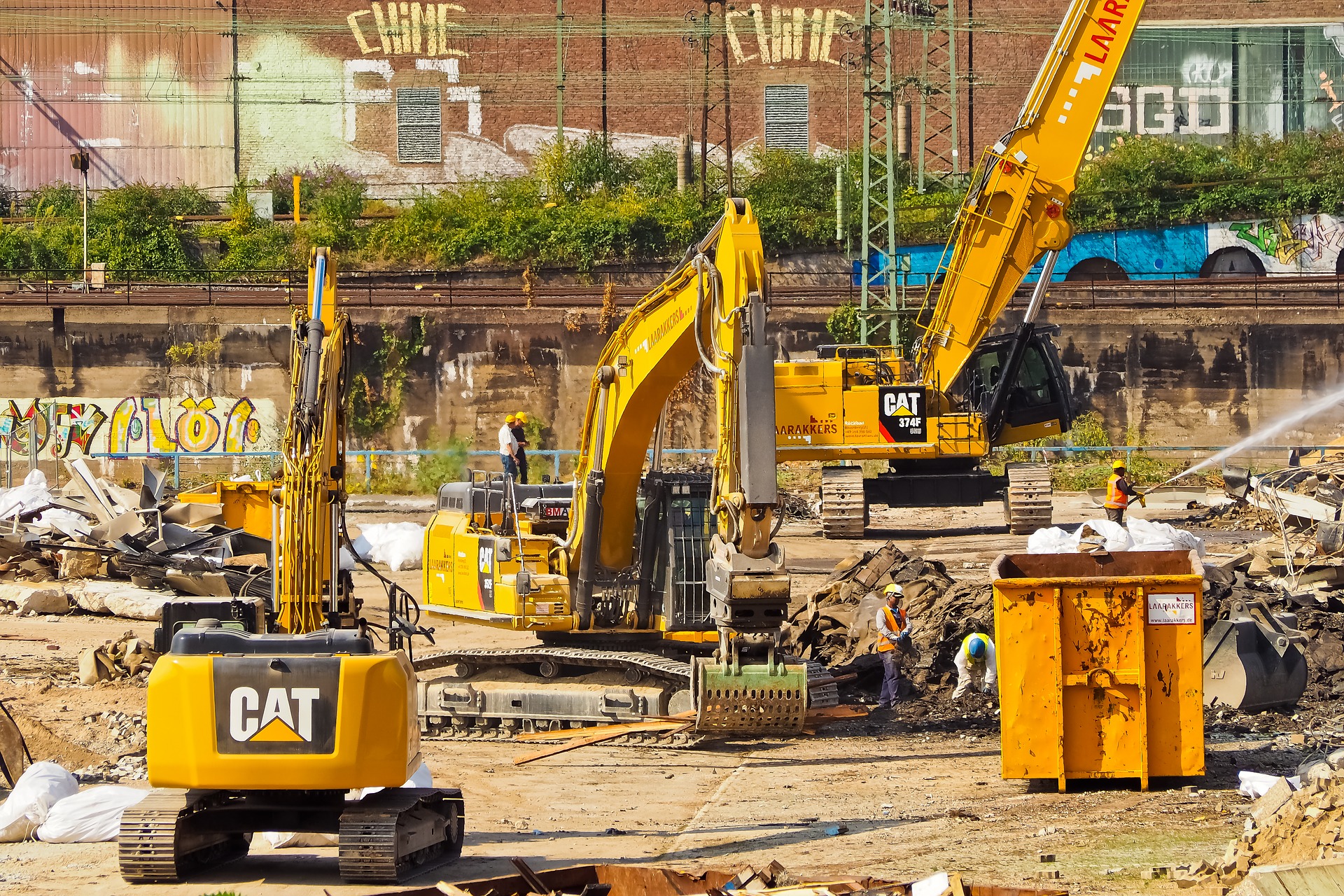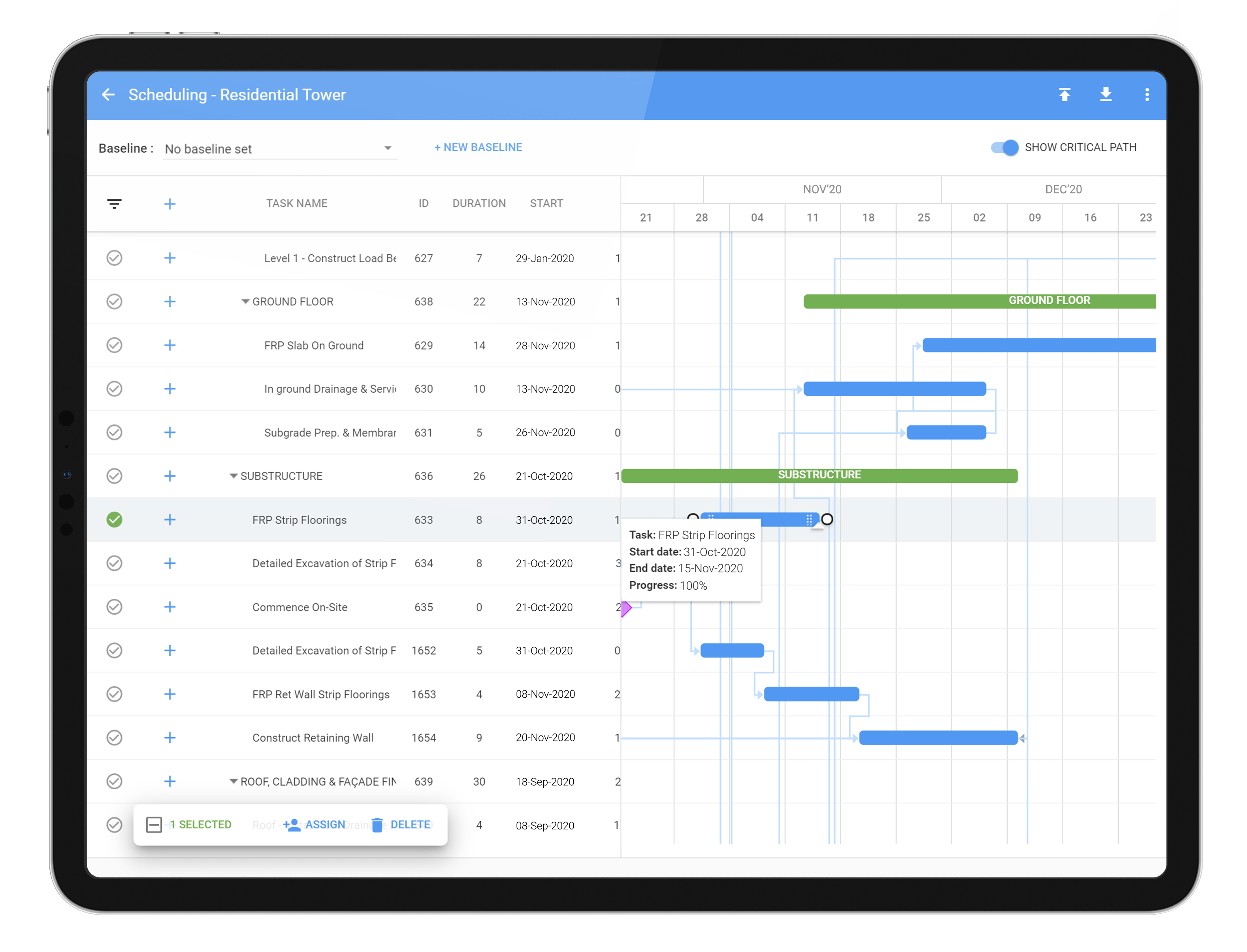With social distancing and self-isolation measures coming into force as coronavirus spreads across the world, many industries are being hit hard by this disruption.
Some businesses are being encouraged to send their employees away to work from home, keeping their day-to-day tasks on track while reducing the risk of infection.
However, for many sectors like the construction industry, working from home is not an ideal solution. When something needs to be physically built, it’s not possible to simply flip open the laptop and press a button – someone has to lift, shift, dig or hammer.
But construction is also all about getting things done. Our sector prides itself on planning and executing complex projects with professional skill.
So let’s consider three major areas of disruption to the construction industry, and then we’ll look at a few possible solutions.
1. Disruption to the global supply chain
Coronavirus has had a big impact in China, forcing the nation to go into lockdown, and severely curtailing its manufacturing sector.
This means – in a world increasingly reliant on Chinese-made construction products – that the supply chain has become quite disrupted with delays on everything from plumbing fixtures to steel and stone products.
This could lead to delays in the construction project life cycle, expanding the timetable for projects that are already underway, and increased material costs for construction projects yet to start.
2. Labour shortages and lost productivity
A major ongoing concern for any construction project is worker safety.
To protect workers from the COVID-19 virus, it may be necessary to reduce the number of workers on-site, or even have them down tools for a period time until the worst of the pandemic passes.
This will inevitably cause major disruptions to construction projects, which rely on meticulously calibrated schedules to allow their complex stages to be completed. This could also lead to shortages of workers and many lost hours of productivity as machines sit idle or underused when people self-isolate. This can have a major impact on construction businesses if they are unable to claim and receive progress payments and in turn pay their staff and sub-contractors.
It will also cause disruptions to construction project management, which is often done in an office environment, with managers required to adapt to working from home if possible. While this allows their work to continue, there will be an adjustment phase, and the arrangement could limit their ability to visit sites in person.
There could also be limits imposed on travel, with workers unable to get to remote projects or construction managers being able to attend meetings, conferences and site visits.
3. Contract disputes
With COVID-19 causing so much disruption, there is a possibility that general contractors and companies engaged in construction projects could become mired in contract disputes as projects run overtime or grind to a halt.
To protect your business or project from this kind of dispute, it’s important to check for a ‘force majeure’ clause – one that allows for ‘acts of God’ such as earthquakes and pandemic.
This clause allows the parties involved to terminate or seek practical completion extensions to the contract without fault if a circumstance out of their control arises. Without one, the construction risk of liquidated damages can fall to both parties or one, depending on the jurisdiction of the project.
And as coronavirus spreads wider and wider, disputes over force majeure could become more common.
Embracing digital solutions
While the problems facing the construction sector are varied, there is a common thread running through – they can be somewhat reduced with digital solutions.
Supply chains can be analysed using construction software that accurately tallies what’s needed and shows where possible shortages are, allowing planners to look for other sources or build delays into the process.
Using construction project management software will allow a construction manager to work on the project from anywhere, altering the plans to fit developments as they come.
Project updates can be flagged using digital collaboration to keep team members informed of progress.
Workers on-site can be better managed through software, timing shifts so that the maximum amount of work can be done whilst minimising the number of people in the area at one time.
Video conferencing technology allows managers and workers to discuss any issues without coming into contact with each other, while digital site inspections allow building project management from a distance.
All of these digital products are widely available and will help ameliorate any construction risk imposed by the coronavirus.
Doing business with greater efficiency
To solve problems with delays due to supply chain issues, it’s vital that construction companies talk to their clients about the situation as soon as possible and see if an extension of time to project completion can be arranged.
For rising costs, look at the overall project and see where streamlining and efficiencies can be introduced. Are you doubling up on anything? Are there items or aspects of the project you can do without, or rearrange the timing of it?
Doing this could stave off any force majeure issues that may arise and allow positive collaboration between the construction project manager and the client.
For new work, construction companies should look at their bid management processes and re-evaluate how they go about winning new business.
In competitive times it can be tempting to bid cheaper prices to get the work. But with supply chains and workforce affected, it may be wiser to have a more conservative bidding process, allowing for any unforeseen future costs to be absorbed.
Construction can build itself back from COVID-19
While COVID-19 is proving to be very disruptive and even damaging, the situation is also an opportunity for the construction industry to use the innovation and creativity embedded within its ranks to minimise the impact on its operations.
It’s a chance to introduce more digital solutions to streamline the whole construction process, making supply chains and workers more efficient while empowering managers with more tools like digital site visits so they can push their projects ahead with greater clarity.
The effects of coronavirus may be felt for many more months, even years. But construction companies that use this period to re-think and plan for new and more efficient processes, and by investing in technology, can reap the longer term benefits.










